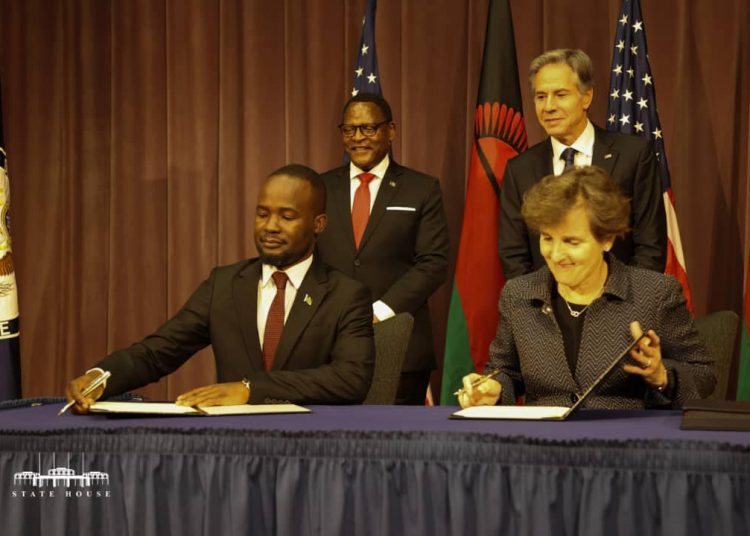Malawi has secured a second Millennium Challenge Corporation (MCC) Compact worth USD 350 Million (Over MK 350 Billion).
The signing ceremony of the deal took place yesterday in Washington DC. The deal was signed by Malawi’s Finance Minister Sosten Gwengwe and MCC’s Executive Director Alice Albright.
Malawi President Dr. Lazarus Chakwera hailed the compact saying the funds will reduce transport costs and strengthen land administration in the country.
“Today (yesterday) in Washington DC, I joined US Secretary of State, Antony Blinken and Millennium Challenge Corporation (MCC) chief executive officer, Alice Albright, at the MOU signing of the 2nd MCC compact for Malawi worth US$350 million,”
“The Malawi Transport and Land Compact will be implemented to reduce transport costs and strengthen land administration in the country,” said Chakwera.
According to the president, among the expected outcomes is construction of the 300-kilometre network of four corridor roads across the country to facilitate greater flow of agricultural products from farms to urban markets.
“Furthermore, state agencies with the mandate to supervise road infrastructure will also receive technical assistance to improve usability of the infrastructure through timely maintenance,” he says.
Chakwera added,” Secondly, the compact will build Malawi’s capacity in land management reforms to maximise land revenue both for rural farmers and the country.
I am delighted that the compact will create a range of economic opportunities for our people.”
The Millennium Challenge Corporation (MCC) is an innovative and independent U.S. foreign assistance agency that is helping lead the fight against global poverty.
Created by the U.S. Congress in January 2004 with strong bipartisan support, MCC has changed the conversation on how best to deliver smart U.S. foreign assistance by focusing on good policies, country ownership, and results. MCC provides time-limited grants promoting economic growth, reducing poverty, and strengthening institutions. These investments not only support stability and prosperity in partner countries but also enhance American interests. With cost-effective projects, a lean staff, and an evidence-based approach, MCC is a good investment for the American people.




















